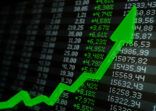“We don’t subscribe to this view [on valuations]. The way that this argument is most often made is through things like price-to-earnings ratios and CAPE [cyclically adjusted price-to-earnings] ratios,” Maldonado, who is also the firm’s global CIO for equities, said during a media briefing on Monday.
These ratios are compared to historical data to make the argument that things have become more expensive. However, conditions now have become very different to what they were like years ago.
“Growth was very different, inflation was very different, interest rates were very different… so it doesn’t make sense to say the ratio is high compared to another time.”
He also described the process as a piecemeal way of making relative judgments between asset classes. Using CAPE ratios for equities and yield data for bonds and then comparing the asset classes is like comparing apples with pears, he said.
According to him, there needs to be an understanding of the current growth and inflation environment and the policy regime the world is likely to face. Only then think hard about the valuation position of each asset class to understand the implied odds that the market has to offer.
Based on the firm’s implied returns model, which compares expected risk premia and expected volatility, asset classes that are expensive and may have zero or negative expected returns over the next five-to-ten years include developed government bonds, which the firm is underweight, he said.
Those that offer value include emerging market equities, particularly Asian equities, emerging market debt, global high yield and US high yield, Maldonado said, adding that the firm is overweight these asset classes.
Although Maldonado may have painted a more positive view of the world, he noted that the firm is forecasting average returns that are very modest.
For example, the firm’s average return for Asian equities is only around 6-7%, which is very modest compared to a decade ago, when average returns were double digits.
“Because of the environment we have been living in – low growth, low inflation, low interest rates, returns are also very compressed,” he said.
Managing risk expectations
Maldonado said that investors should not be overconcerned about geopolitical events such as the election of Donald Trump in the US and the Brexit vote in Europe.
In his presentation, Maldonado showed different unexpected events over the last 11 years, such as the collapse of the Lehman Brothers, Japan’s nuclear disaster, nuclear missile testing in North Korea, the rise of Isis and the Russian financial crisis. “Imagine you were back in 2005, and I told you all the things that are going to happen in the next 10 years or so. That all sorts of nasty things are going to happen. What would you have done?”
People who did not invest in risk assets back then would have missed out on investment opportunities, he said, showing that the performance of the S&P 500 Total Return Index has more than doubled over the period while the MSCI ACWI Total Return Index increased by around 50%.
“Although we worry about geopolitical events, in the long run, they have much less of an impact than you would have imagined,” he said. “The market is pretty good at absorbing them.”
















